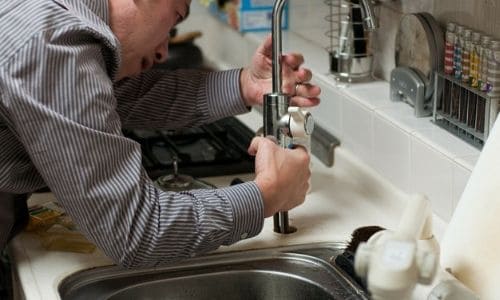Plumbing Preventative Maintenance Tips

All of us have at one point experienced a problem with our home’s plumbing system. Many of us had simply taken the system for granted and failed to maintain it properly, which is why the problems occurred.
Plumbing emergencies, such as a backed-up toilet or burst pipe, are not only expensive to fix, but also very difficult and time-consuming to repair. So, what is it that we can to do prevent them or how to react if they still occur?
7 Plumbing Preventative Maintenance Tips
- Inspect for leaks regularly
- Be careful of what you flush down the toilet
- Use kitchen garbage disposal for food waste only
- Clean sink traps regularly
- Flush your water heater
- Add pipe insulation
- Know where your shutoff valve is
Regular inspection for leaks
It’s important to inspect your fixtures regularly for leaks and react immediately if you notice your water bill is much higher than usual without any logical explanation. No matter how small a leak is, if you don’t react it could lead to major issues. Also, check whether your toilet rocks on its base or whether your walls are stained, paint peeled or whether you detect any musty odors. Leak inspection is also among the common things to check before selling your home.
Be careful what you flush down the toilet
Only toilet paper should be flushed down your toilet. If you throw diapers, feminine hygiene products, food leftovers or any small object in the toilet, you’ll be creating a great risk of a serious emergency. Also, make sure you don’t dispose of oils and fats down the toilet or garbage disposal, no matter how tempting it may seem. Namely, grease will wreak havoc with your plumbing pipes and you’ll end up with a grave issue.
Use kitchen garbage disposal for food waste only
Not everything can be thrown into your kitchen garbage disposal. For example, bones and fruit pits are too hard; celery stalks and artichoke leaves are too stringy, while oatmeal, pasta and rice are so starchy that they clog up the machine. Also, tossing non-food items, such as plastic, metal or used sponges is simply a bad idea. The disposal can only handle small amounts of food left on dinner dishes or mixing bowls. The rest should go in the trashcan or, even better, your compost pile.
Clean sink traps regularly
Blocked pipes are one of the most common residential plumbing emergencies. Hair and other gunk that gets washed down the drain can easily block the pipes, as many Australians have found out. That’s why you need to have sink strainers everywhere, from the kitchen to the bathroom, if you want to avoid this problem.
You should also clean out your sink traps 3 times per year to prevent clogs. Here is a helpful video about how to replace your sink traps to one that will leak less often and is easier to clean out.
Meanwhile, in the event that your pipes get blocked or clogged, you need to call an expert. This Northern Beaches plumber, for example, uses CCTV drain cameras to identify the problem and high-pressure water jets to blast through almost any obstruction. This method is much more preferable to using harsh chemicals.
Flush the water heater
Your water heater tank should be flushed at least once a year to remove sediment build up. This is something you can do on your own, just make sure you shut off the electricity or gas and then heater’s cold water supply valve. Also, make sure you inspect the tank regularly, one a month for instance, to check for drips or other problems.
Pipe insulation
If you live in a cold climate, your pipes should be well insulated. On those really harsh winter days, open cabinets to expose piping to the warm ambient air and leave the faucet dripping slightly to keep pipes from freezing. Every autumn, close all outdoor taps and detach hoses and make sure you clear standing water out of your sprinkler system.
Know where main water shut-off valve is
It’s vital you know where this valve is. In most cases, it’s located at the front of your home, close to the water meter. You need to use this valve to shut off the water supply in case of a broken pipe or overflowing appliance if you want to prevent even greater problems. Test the valve occasionally to make sure the handle is easily turned, since it can stiffen up on freezing winter days.
Some emergencies might occur despite all the measures of precaution you’ve taken, but by taking care of your plumbing system properly will not only minimize the chances of various problems occurring, but also help you keep the damage under control.
Related Articles
Exterior Improvements that Can Boost Home Value
Improve the Look and Value of Your Home with Lighting
Discussion Topics
